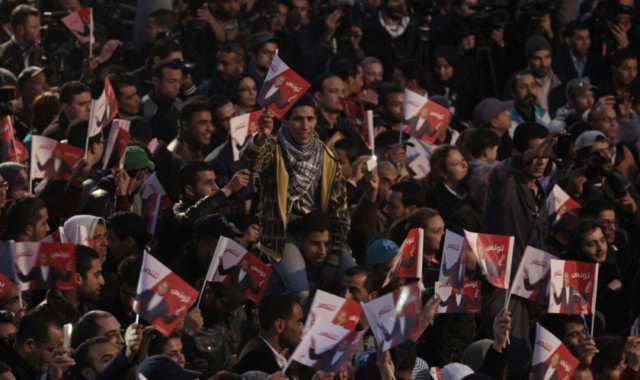
Commenting on the issue, Lebanon’s Daily Star said that the presidential election in Tunisia should be taken as a sign that not everything in the region is generating violence, tension, anger and despair.
“[Beji Qaid] Al Sebsi has talked about restoring the prestige of the state and the best way to do this is to ensure that the concerns of ordinary citizens are a priority. As the country that sparked a wave of popular uprisings in the Arab world, Tunisia has a special role to play in showing other countries that coexistence, promoting economic development, and fighting corruption and injustice aren’t just slogans to be trotted out at election time.”
UAE’s Al Bayan noted that with successful polls that saw a 60 per cent turnout, Tunisia has once again personified a democratic victory. “Tunisia now enters a new turning point in its history to achieve the goals of its revolution and regain its regional and international status, keeping disputes and sectarian feuds at bay. This will unite Tunisians under one umbrella without excluding or squandering the country’s natural resources and wealth. Tunisians must unite to confront current and future challenges, and at the forefront of these challenges are the terrorists trying to weaken Tunisia, taking advantage of the country’s leaders being busy with their own issues and political interests.”
Qatar’s Al Sharq newspaper said that Al Sebsi and Munsif Al Marzouqi have set an example that can be aspired to as far as the acceptance of the election results and respecting the will of the voters are concerned.
“Tunisia is taking steps towards laying the foundations for a fledgling democracy and sportsmanship, commitment to the higher national interests and striving towards a national consensus that is free of any exclusion or discrimination. Tunisia has also proven that Islamists and other political powers can coexist and seek office through polling stations. It is important now to continue the march of reforms in all fields, so the economic and social transition can benefit all Tunisians.”
Tunisia is putting in place the building blocks for a new phase that will not be easy because it requires massive efforts and sacrifices to confront complicated social, economic and security issues, said UAE’s Al Khaleej. “There is the issue of unemployment, which has reached astronomical rates among the youth and the educated. The necessary plans must be implemented during this phase in order to address this issue before it worsens, particularly because youth are the power behind the revolution.”
Writing on the issue, Algeria’s Al Fadjr newspaper said that democracy had won in Tunisia. “Tunisia has overcome a very difficult phase in its history — thanks to the awareness of the people and engagement in the political process. Its intellectuals and its media protected Tunisia, whose real wealth is the knowledge and sophistication of its citizens. Tunisia will not be scared by threats of terrorism that targets the nation because the people have chosen a non-Islamist candidate. This is merely a passing phase. The true challenge lies in how the new leadership will deal with economic issues, which it has inherited from the regime of the ousted Tunisian president Zine Al Abedine Bin Ali ... People expect the new leadership to usher in security and social stability...”





_resources1_16a31069e4e_small.jpg)






